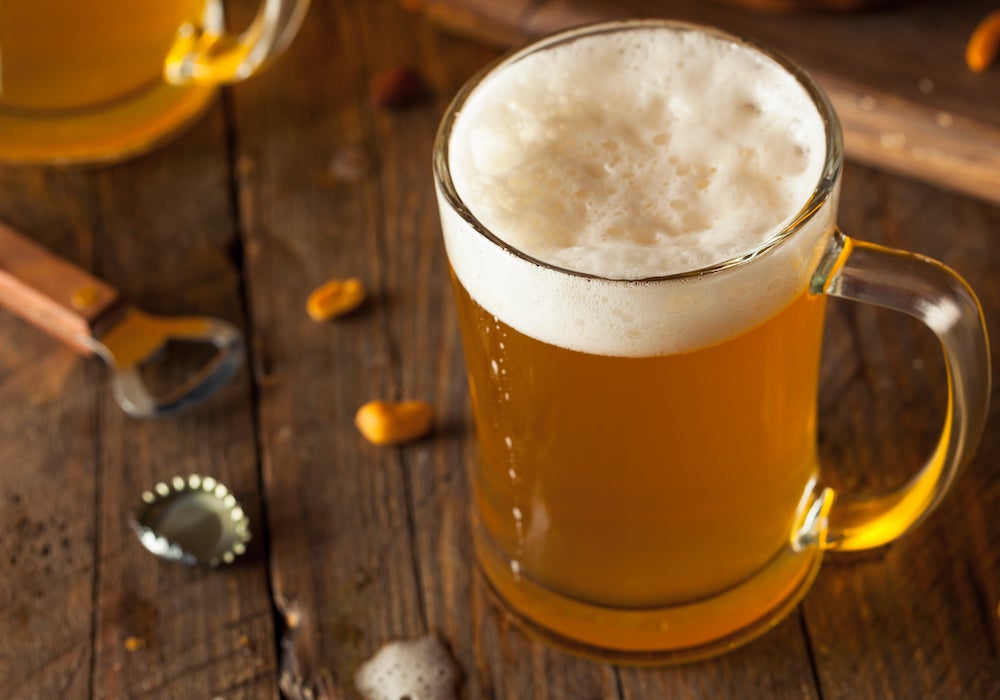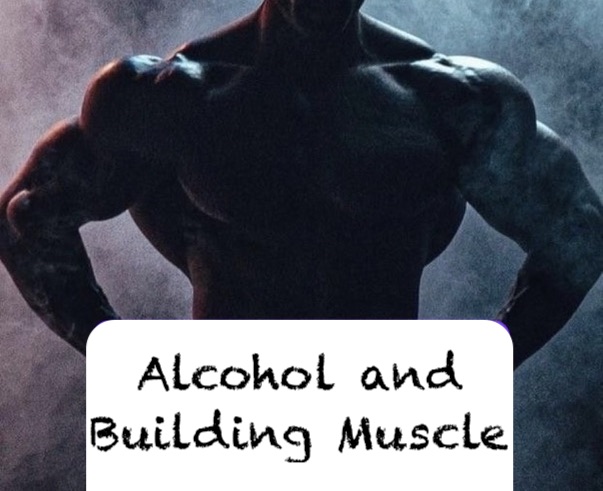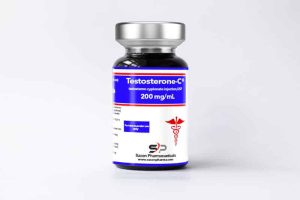What’s the relationship between alcohol and building muscle? Is there any connection between the two? Can you drink alcohol and still make gains? It is a very popular topic on the internet nowadays. Besides, it seems there’s an ongoing debate on this topic as there are mixed opinions.
In the end, there are a lot of newbie bodybuilders wondering if they should give up the beer in order to achieve their gym goals. While some suggest you should give up, others claim that moderate amounts have health benefits. The third group of people may suggest that it depends on the type of alcohol you drink.
Where’s the truth? Let’s check in more detail the alcohol and muscle growth topic.
Alcohol and Muscle Growth
We all know very well that alcohol can cause a myriad of negative side effects leading to a lot of health issues. Nonetheless, alcohol is still available (for adult people) and lots of people suggest that it may even come with benefits. One sure thing, regardless of whether you plan to grow muscle or just remain healthy – regular alcohol consumption is indeed as bad as you know it and it won’t cause any benefits, only leading to harmful effects. Under no circumstances encourage regular alcohol consumption.
Generally, alcoholic beverages are solutions that contain ethanol. This is a psychotropic substance that has a depressant impact on the nervous system. Compared to other substances, ethanol has a relatively lower toxicity while still providing a psychoactive effect.
This toxicity is what makes alcohol, in any quantity, harm muscle growth and strength as long as you want to make gains. It doesn’t mean that one beer will ruin all your gains. It means that it definitely won’t help it, and has the potential to halt your progress.

So, how much of an impact does alcohol have on muscle growth?
- One drinking session will lead to mild intoxication. It has a similar effect (impact) as skipping one workout session.
- A drinking session where you become severely intoxicated can significantly reduce your performance in the gym. It can last for a few days up to two weeks!
- Regular consumption of alcohol, even in small quantities, besides toxicity and negative effects on health, will lead to a plateau in 80% of athletes with a 100% chance of decrease or at least plateau muscle growth.
Scientists found a significant decrease in testosterone levels and an increase in stress levels during the day after drinking alcohol. Each one harms the muscle building process. It also decreases HGH levels – another key hormone when it comes to muscle growth. Another reason why alcohol harms muscle building processes.
That’s the opposite of taking anabolic steroids and HGH. That’s why bodybuilders use testosterone (among other steroids) and/or growth hormones. Higher levels = bigger/faster gains.
Alcohol’s Impact On The Body
Impacts on Muscle Protein Synthesis
If you’ve followed our posts so far, you may have noticed we’re often talking about muscle protein synthesis. This is a crucial element when it comes to the muscle building process. Quality foods, an active lifestyle, enough sleep and rest, stress-free life, and anabolic steroids all help increase muscle protein synthesis. This helps you increase the rate and amount of muscles you can build. Protein synthesis is the process of mixing amino acids in a specific sequence to build muscle.
According to studies, consuming alcohol even in moderation will slow this process by 20%. Therefore, the process of muscle building slows by 20%!
Reduces Growth Hormone Levels
Alcohol also suppresses the secretion of Insulin-like Growth Factor 1 (IGF-1) and Growth Hormone (GH) according to another study. Two days after consuming alcohol, the levels tend to stay lower.

Drastic Impact on Testosterone Levels
Regular alcohol consumers tend to notice very low testosterone levels. Needless to mention the importance of this vital hormone for muscle growth. But besides decreasing your testosterone levels, alcohol also can increase your estrogen levels. Regular consumption of alcohol can shift to a negative ratio of testosterone and estrogen, leading to a lot of issues. The reason alcohol increases estrogen is because:
- Increases the number of proteins that bind to testosterone (making it useless)
- Conversion rate of testosterone to estrogens increases (higher estrogen levels)
- Some alcoholic beverages such as beer contain estrogen-like substances (increasing it)
- Alcohol and its metabolites stimulate estrogen receptors directly (more active)
Because of higher estrogen levels and lower testosterone levels, your overall health condition will worsen, both physically and mentally. Because of lower T levels, your swimmers will take a hit too. Moderate alcohol consumption weekly will lead to lower sperm quality in healthy young men!
Dehydrates You
Ever woke up the next morning after a heavy drinking with a pounding headache and a super dry mouth? That’s dehydration. Alcohol dehydrates you but you just can’t imagine the importance of proper hydration. When we drink alcohol, our kidneys attempt to flush it from our system (because our body “thinks” of it as a toxic substance, which it really is). As a result, it leads to dehydration because our kidneys are over-stimulated.
You need to already know that water plays an essential role in building muscle mass. If you’re dehydrated, muscle growth stops. Simply because our muscles can’t get what they need in order to grow as no water carries the nutrients they need. In fact, in severe cases of dehydration, it could even lead to the breakdown of muscles. Even low alcohol drinks may limit muscle recovery, thus, muscle growth.
Not only that but consuming alcohol also leads to a deficiency in specific vitamins and minerals. In particular – Vitamin A, all Vitamins B, and vitamin C as well as calcium, phosphates, and zinc. Each and every one of them is extremely important for making gains and building muscle. They are very important for creating anabolic hormones too.
Creates Fat
As said, alcohol will increase estrogen levels – the hormone that aids fat formation and leads to bloating and other negative effects. This alone suggests that alcohol supports fat formation. But besides that, did you know that alcohol is actually full of calories? While it has no nutritional value at all, just one gram contains seven calories. Studies suggest that most energy you consume from alcohol (from its calories) will turn into fat. Simply because those are “empty” calories without any nutritional value.
(Our bodies are smarter than we think, huh? – it just proves that alcohol is a toxic substance and our bodies attempt to get rid of it!)
In addition to that, we all know that drinking alcohol increases appetite and cravings for junk food – another way it leads to fat creation.
Reduces Sleep Quality
Alcohol helps you sleep, right? Wrong! Contrary to many people’s beliefs, drinking alcohol disrupts your sleep and does not allow you to spend as much time in REM sleep – the most important part of your sleep where all the “magic” happens and your body recovers. While you may be out after a few beers, you may notice that you’re not fully rested the day after drinking. That’s because it reduces sleep quality!
So, the beneficial impact of sleep on your overall body and mind is not as effective and your muscles are not healing as they should.
Increases The Risk Of Cancer
While it’s obvious that it won’t cause cancer overnight, why risk it? The research indicates there’s a link between alcohol consumption and increased risk of cancer developing.
Impacts Your Brain Function
Research suggests that alcohol consumption affects the brain. Well, we all knew that even without research, didn’t we? Yet, studies suggest that chronic alcohol consumption kills most brain stem cells, reducing the production of new nerve cells. It leads to various mental issues such as less cognitive function, memory loss, inability to focus, and others.
Negative Liver Impact
It’s not uncommon for alcoholics to suffer from liver issues, such as liver cirrhosis, liver cancer, and liver failure. Alcohol, as said, has a mild liver toxicity score. Nonetheless, regular use is enough to cause various liver issues. Negative effects on the liver will work as a domino effect leading to other issues such as increasing inflammation processes in the body, negative impact on cholesterol and cardiovascular system, negative impact on hormonal balance, and numerous others.
Moreover, if you’re combining alcohol with other liver toxic substances (such as some OTC medications, recreational drugs, or specific anabolic steroids) – liver toxicity increases even more.
While some oral steroids, for example, also can negatively impact your liver, they work the other way around and greatly support your muscle gains. Moreover, we strongly recommend keeping short the cycles with liver toxic steroids.
Conclusion
In the end, while a cold beer may not seem like a big deal, it can still have a negative impact on your gains, stopping you from smashing out your best performance (both in the gym and the bedroom). It can decrease or halt muscle gain, add some pounds of fat, impact your sleep, and negatively affect your liver. That just doesn’t make it worth it.
Instead, you could make some serious gains by increasing your testosterone levels and overall lead to a great enhancement in performance in the gym (and bed) by using our products. We can help teach you how to use them right and safely so you can get the best results as soon as possible.
BUY STEROIDS ONLINE FOR SALE HERE
- You can get all you need and even more with Cycle Gear. Get 100% quality anabolic steroids and whatever bulking and cutting products you need for the cheapest prices on the market! Instead of spending money on alcohol that has no nutritional value and doesn’t help (but even stops) making gains, you can go with the products from Cycle-Gear.to that are sure to get you to your bodybuilding goals!



